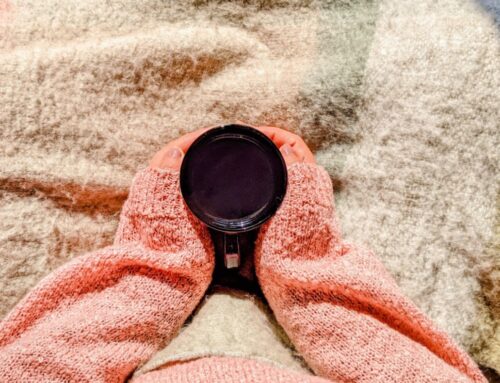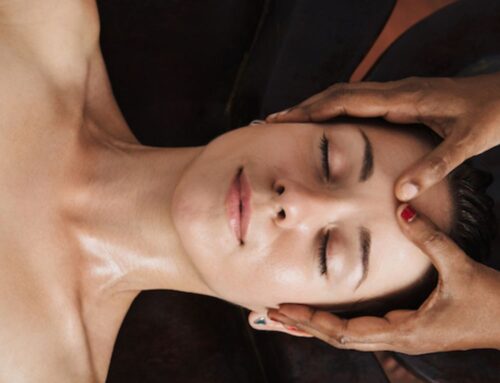Ayurveda says, “ब्राह्मे मुहूर्त उत्तिष्ठते स्वस्थो रक्षार्थम आयुष:|” It means that “to secure a healthy life, one should wake up early in the Brahmamuhurta.” Brahma means the Lord of Creation. Muhurta means time. Together it means the Time of Brahma, Lord of creation.

When is the time of Brahmamuhurta?
According to Ayurveda, Brahma muhurta is approximately one hour thirty-six minutes before the sunrise. It changes every day, and it is different from place to place, depending upon the latitude and geographical location. For example, if the sunrise somewhere is at 5 am, Brahmamuhurta will begin at 3:24 am; if the sun rises at 7 am, Brahmamuhurta begins at 5:24 am.
Why is it essential to wake up in Brahmamuhurta?
During Brahmamuhurta, the environment is peaceful and it has the appropriate amount of oxygen levels. Therefore, for better health, Ayurveda suggests practicing meditation, yoga, and other health-enhancing regimens during Brahmamuhurta hours.

Drink Water
Your body requires a sufficient amount of water to carry various functions of its system. Drinking water empty stomach in the morning will hydrate and replenish your body. If you are suffering from constipation, drinking water will help eliminate bowels quickly in the morning.
What temperature of water to drink? In hot weather, drink a glass of room temperature water and during cold weather drink warm water.
Clean Your Teeth
Have you ever tried herbal tooth powder to clean your teeth? If not, I would recommend you to please give it a try.
Cleaning teeth with herbal powder might look strange to some people. If you are one among those who love to embrace herbalife, you will never regret trying this regimen. Brushing your teeth with herbal powder cleans your teeth and leaves you with a refreshing feeling inside your mouth.
You can use neem powder, cinnamon powder, meswak powder, babool tooth powder, or licorice powder. These herbal powders are readily available in the Ayurvedic stores in India. I have also mentioned a homemade toothpowder formula in a lifestyle section of the website. Have a look and prepare your own toothpowder at home.
Tongue Cleaning
Have you ever tried cleaning your tongue with a scraper? If yes, then I am sure you know how fresh it feels instantly after scraping your tongue. If not, kindly try tongue scraping and see the difference.
To maintain oral hygiene, Ayurveda recommends cleaning your tongue with a scraper. Here are the benefits of tongue cleaning:
- Reduces bad breath
- Cures gum infections
- Relieves tooth decay
- Removes harmful bacteria from the mouth
How to do this?
Step 1: Rinse your scraper under the running water.
Step 2: Gently rub it on the surface of your tongue. Rinse it every time after rubbing on your tongue.
Step 3: Repeat it 4-5 times until the tongue looks clean.
Step 4: Wash your scraper with the running water.
Oil Pulling
Oil pulling is an Ayurvedic regimen, also known as “Gandusha” or “Kavala.” It is an act of swishing oil inside your mouth.
Here are the benefits of oil pulling:
- Prevent cavities
- Improves gum health
- Strengthens the jaw and mandible
- Removes the bacterias easily from interdental spaces
How to do this?
- Take one tablespoon of sesame or coconut oil.
- Swish it for 5 minutes inside your mouth.
- Spit it out after and rinse your mouth with warm water.
If you are new to this, try practicing it with one teaspoon of oil initially. Once you get familiar with this practice, you can start using one tablespoon of oil for swishing.
Meditation:
Meditation is a path to achieve calmness, positivity, and mental clarity. It helps one reach a happy and energized state of mind. It does not matter if you are a 16-year-old teenager or 90 years elder, meditation helps you at any age.
If you are a beginner, I recommend you start with 10 minutes of meditation every day in the morning and evening. After a week, you can increase the sitting time for meditation as per your capacity.
If you do not know what meditation is and how to do it, kindly consult an expert or learn through meditation courses available online.
Yoga & Pranayam:
“योगश्चित्तवृत्तिनिरोध” – means yoga is the cessation of fluctuations of the mind.
Yoga involves controlled inhaling, holding, and exhaling of breaths along with the asanas (postures). It helps to acquire physical fitness and mental calmness. A study suggests that yoga helps to build a strong immune system.
If you are new to yoga, I would recommend you to practice under the guidance of a yoga instructor initially. It will help you to understand which asana is better for you according to your requirement.
Is waking up in Brahmamuhurta significant even if I sleep late at night?
Sleep is an integral component of our life. When we are sleeping, our body repairs and heals itself. Hence, it is essential to get a sound sleep at night. Along with waking up early in the morning, it is correspondingly necessary to complete 6 to 8 hours of sleep.
Sleeping hours vary from person to person. To feel happy, healthy, and energetic in the morning, some may need 6 hours of sleep, and others may require 8 hours of sleep. One has to assess it for themselves.
If you sleep late at night, it is not easy for you to wake up in Brahmamuhurta. In such a scenario, you can skip awakening in the Brahmamuhurta and complete your sleep cycle.
Long term practice of staying awake late at night and not waking up in the morning is harmful. It could lead to various lifestyle disorders. Sleeping on time and waking up early in the morning has tremendous overall health benefits.
Essential Note:
Ayurveda tells that only a healthy person should wake up in Brahmamuhurta. Anyone who is not feeling well, suffering from any major illness, pregnant, aged person, kids are advised to not wake up in Brahmamuhurta.






Leave A Comment